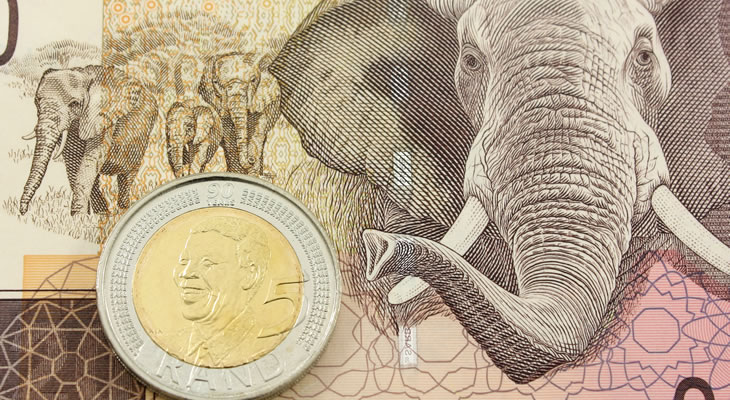The Pound Sterling to South African Rand (GBP/ZAR) exchange rate advanced by around 0.61% on Friday afternoon.
British consumer inflation expectations over the next 12-months were cut in February amid low oil prices. Sterling’s declination has been somewhat laboured, however, thanks to continued support for the Bank of England (BoE), especially considering several policymakers stated that they believe deflation to be a temporary issue.
The South African Rand, meanwhile, strengthened versus several of its most traded currency rivals despite domestic data showing a slight declination in Foreign Exchange Reserves. The appreciation may be attributed to South Africa’s largest energy provider, Eskom, striving to raise the requisite cash to put an end to the current crisis. However, the gains were short lived after a surging US Dollar saw dampened demand for emerging-market currencies.
The Pound Sterling to South African Rand (GBP/ZAR) exchange rate is currently trending in the region of 18.1470.
Pound Sterling (GBP) Exchange Rate Cools as Inflation Expectation Drops
After British economic data failed to impress on Friday morning, the Pound softened versus many of its most traded currency rivals. The BoE Inflation Expectations for the next 12-months dropped to 1.9% in February, down from November’s figure of 2.5%. The drop to 1.9% is the lowest level in 13 years.
‘The BoE survey typically shows a disconnect between perceptions of inflation and the official consumer price index. The BoE said the median estimate among respondents for inflation over the past 12 months was 2.2 percent — more than 7 times the CPI rate in January,’ stated Andy Bruce, writing for Reuters.
The Pound Sterling to South African Rand (GBP/ZAR) exchange rate has fallen to a low today of 17.8810.
South African Rand (ZAR) Exchange Rate Declines on US Dollar Appreciation
South African economic data printed relatively disappointingly on Friday, but had little effect on the Rand’s uptrend. Foreign Exchange Reserves dropped from $47.6 billion to $47.19 billion in February, under the median market forecast of a drop to $47.42 billion. The below-forecast result has been blamed on excessive imports in Malawi.
‘We want Malawians to embrace the ‘Best Buy Malawi’ campaign, where we urge locals to buy locally made products because imports are hurting our economy,’ Industry and Trade Minister Joseph Mwanamvekha told The Anadolu Agency.
The Rand also strengthened as a result of Eskom doing all in its power to raise enough money to tackle the increasingly volatile energy crisis which has led to many blackouts. ‘We have serious financial constraints and extraordinary decisions are required,’ Tshediso Matona told the Reuters Africa Investment Summit. ‘And we are doing that work right now to unlock cash from our balance sheet … We are looking at what we can do with our assets such as our property portfolio,’ he said.
After US jobs data printed impressively, however, the Rand softened versus many of its most traded currency competitors.
Pound Sterling to South African Rand (GBP/ZAR) Exchange Rate Forecast to Hold Losses
Given the extent of the declination, and with a lack of data to curb the trend, the Pound Sterling to South African Rand (GBP/ZAR) exchange rate is likely to hold losses for the remainder of Friday’s trade. There is the possibility, however, that the Rand may decline somewhat if US data provokes a ‘Greenback’ (USD) rally.
The Pound Sterling to South African Rand (GBP/ZAR) exchange rate reached a high of 18.0600 today.

